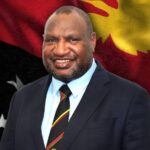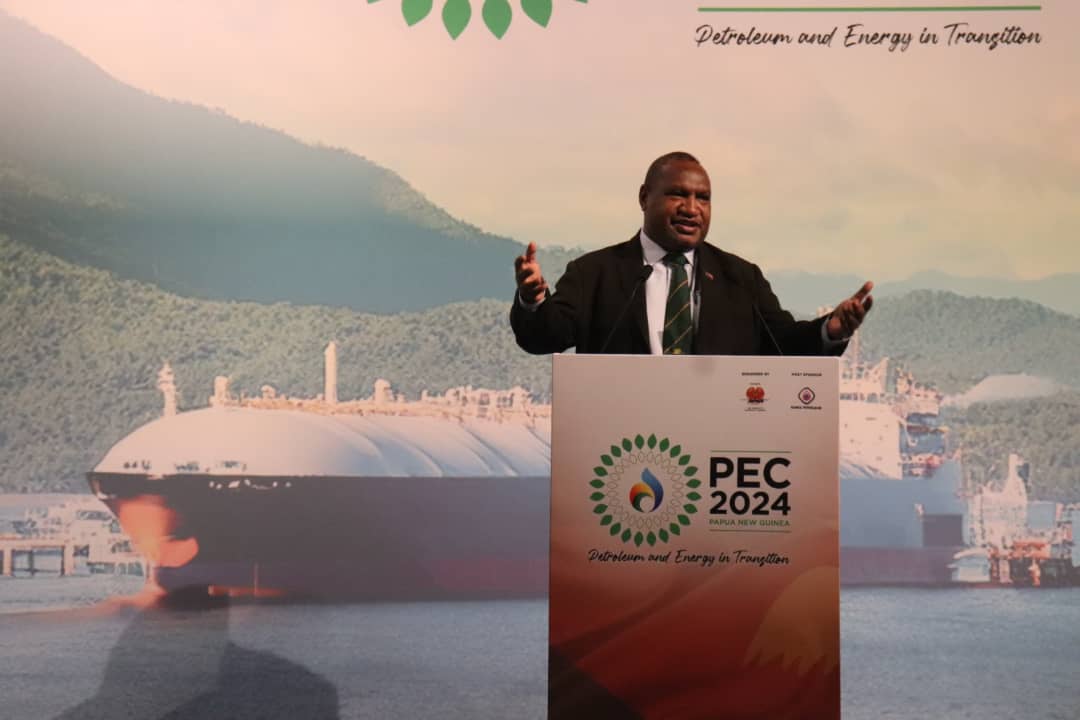Ministers of State and all other Honourable Members of Parliament
Leaders of Businesses,
Esteemed Guests
Ladies and Gentlemen
Fellow Papua New Guineans
I’m honored to open this significant conference, focusing on the critical issue of energy and its impact on our planet as well as what PNG is doing to regulate and promote the energy sector.
I firstly want to thank Kumul Petroleum and ExxonMobil plus all host of sponsors for enabling this platform to engage in contemporary energy conversation with a PNG focus. I also thank all of our international attendees and speakers for your presence here in 2024.
As we gather here this morning, I want to return our attention to the times we are living in and the climate crisis we are facing. Climate change and its impacts are by now common knowledge, and for those of us in the Pacific, have become existential threat because of rising sea levels and changing weather patterns. Even though Papua New Guinea and its sister, small island countries of the Pacific have very low carbon footprint, we face the highest risk from the climate crisis.
It is with this backdrop in mind that I emphasize our choices in energy production and consumption, and their far-reaching consequences on future generations because of their direct correlation to the climate crisis.
I want to bring the spotlight on the production of heavy carbon-filled fossil fuels, especially coal. It is hard to believe that in this modern age of space travel and superspeed technology, the world is still burning coal. Yet, this is true. Coal accounts for the largest share of electricity production worldwide, with gas coming in only at second place. In the Asia region where economic growth and high populations have placed very high demands on energy consumption, the reliance on coal is the highest worldwide.
The International Energy Agency has continually been publishing reports on the alarming trends of coal consumption. The 2020 – 2023 figures reveal that China accounts for a massive 50.5 percent of the global coal consumption, followed by India at 11.3 percent. United States comes in next at 8.5 percent; Germany at 3 percent; and South Africa at 2.4 percent. Poland, Australia, and Brazil are also listed.
Papua New Guinea recognizes the harmful effects of coal and other heavy carbon-filled fossil fuels on our environment as well as the need to transition away from these heavy fossil fuels.
The global call to shift to clean energy is, therefore, a crucial call to action. It must be done without any more delay, and Papua New Guinea must be among the leaders carving this new path. Whist our LNG remains the better option cleaner transitional energy choice, we also offer our vast potential in generating clean energy from hydro, thermal, and solar sources to those who want to venture into future renewable energies in line with environmental stewardship as our present moral responsibility toward our earth’s future .
PNG is getting our house in order to “think globally and act locally”. PNG is a carbon-negative country. Our forest have over 100 million metric tons of carbon absorption capacity, our own carbon foot print remains under 10 million metric tonnes, and despite the high cost of energy, we choose to differ now and into the future. We want to remain a clean green country and we want to make and lead this transition to clean energy.
The call to prioritize the wellbeing of our planet is more urgent now than ever before. This call has become even more urgent with more nations switching back to coal in Europe and Asia and elsewhere. Let me remind all of us again of our generation’s moral responsibility to ensure a sustainable future for our children.
I firmly believe that liquified natural gas (LNG) is the best energy source for transition between now and life after 2050, if we are to keep Mother Earth. LNG is cleaner, more efficient, and aligns with our goal of reducing carbon emissions. It is the lowest hanging fruit in terms of transitional energy with availability of technologies and present use including diversification of LNG to fuel.
I have said this many times; today, I say it again. Papua New Guinea is blessed with an abundance of energy sources, including LNG, hydro, geothermal, and solar power.
We invite investors and experts to explore and develop these resources, leveraging our strategic location closer to Asian markets. Our vast forests also provide a unique advantage, offsetting carbon footprints and making PNG an attractive destination for environmentally-conscious investments.
As we work toward a cleaner energy future, research into cost-effective alternatives remain crucial. However, we cannot delay transitioning to LNG and other renewable sources. We must act now to reduce our reliance on coal and heavy oil/fuels.
To achieve this vision, collaboration is key. I urge governments, companies, and individuals to join forces and prioritize environmental stewardship. Together, we can create a sustainable energy landscape that benefits our nation, the region, the world, and our planet.
PNG will be on the lockout for investors who want to participate in cleaner energy solutions. We always work with our investors offering incentives and protections so that their investment is secure. Some may be wondering about regime shifts but I want to assure you that whatever regime shifts we embark upon, one thing is certain. And that is our provisions to protect our investors making a healthy return on their investments. This will always be protected.
I wish you all a productive session of discussions as you deliberate and seek ways to develop our petroleum and energy sector, and I look forward to hearing of the outcomes reached at the end of the conference.
Again let us switch off coal by opening up more LNG as transitional energy and eventually move to cleaner energy sources.
It is now with much pleasure that I officially open the 2024 Petroleum and Energy Conference, and wish you all the very best!




